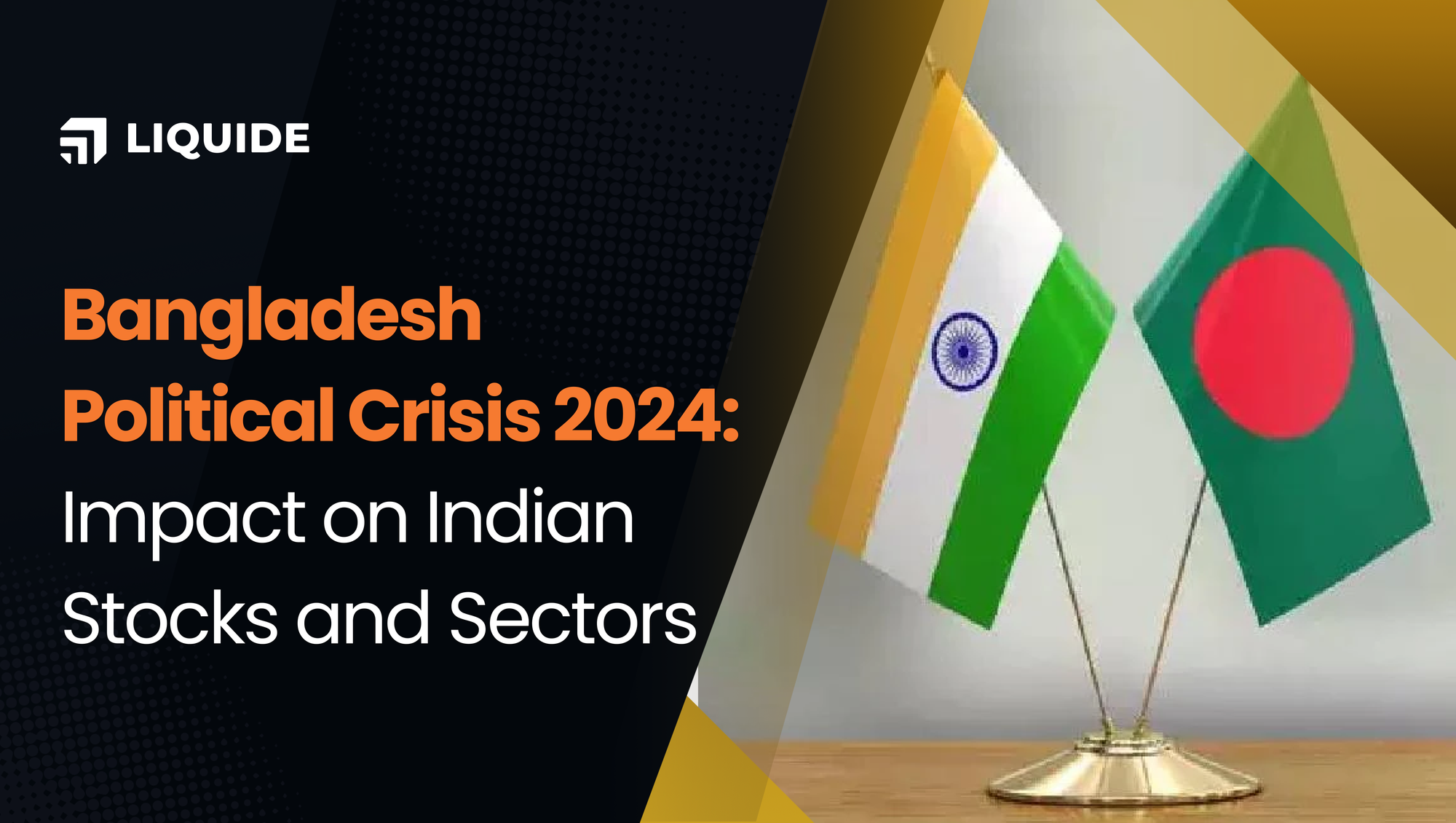Bangladesh Political Crisis 2024: Impact on Indian Stocks and Sectors
Explore the effects of Bangladesh's political crisis on Indian businesses. Discover impact on companies like Marico and Adani Power, and assess risks and opportunities for India’s textile sector amid the turmoil.

Overview of the Crisis and its Immediate Effects
Bangladesh is currently facing its most severe political crisis since gaining independence in 1971. The resignation and subsequent flight of Prime Minister Sheikh Hasina, following weeks of violent protests and clashes, marks a significant turning point in the country's political landscape. This crisis, while causing a significant loss of life during protests, also poses potential disruptions and opportunities for Indian businesses operating in and trading with Bangladesh.
Indian Companies with Operations in Bangladesh
Several Indian companies with significant business ties to Bangladesh felt immediate effects:
Pearl Global Industries: With about 25% of its revenues coming from Bangladesh, shares of the company faced pressure early in the week.
Marico: The maker of Saffola encountered a decline in its stock value in response to the news, given its significant revenue share (around 11-12%) from Bangladesh.
Adani Power: Adani Power has been under the spotlight due to its power supply agreement with Bangladesh, where it is committed to providing 1,496 MW of power over 25 years.
Other affected Indian corporations include Bayer CropScience, Trent, VIP Industries, Tata Motors, Bajaj Auto, Godrej Consumer Products, Emami, Britannia Industries, Dabur India, Asian Paints, Pidilite Industries and Jubilant Foodworks.
Opportunities Amidst Crisis: Indian Textile and Garment Sector
The crisis has had mixed effects on India's textile and garment sector. With Bangladesh constituting 25-30% of India's yarn exports, the sector faces some uncertainty. Although the immediate impact on yarn exporters has been moderate, there is potential for more significant disruption should the crisis continue.
However, this situation also presents opportunities for Indian textile and garment manufacturers to increase their market shares. Companies like Gokaldas Exports, KPR Mill and Arvind, saw their stocks climb, indicating a shift in market optimism towards Indian suppliers. While this presents a potential advantage, caution is advised against pursuing this rally too aggressively, as the gains may only offer a temporary respite in the face of ongoing instability.
Long-Term Impact of Bangladesh Crisis on Indian Trade
While the ongoing political unrest in Bangladesh may impact India's immediate trade relations with the country, it's unlikely to significantly alter India’s overall external trade dynamics. India, as a diversified exporter, relies on Bangladesh for only 2.5% of its merchandise exports. India's exports to Bangladesh dropped to $11 billion 2023-24 from $12.21 billion the previous year, and imports decreased to $1.84 billion from $2 billion.
Conclusion: Monitoring the Evolving Situation
The ongoing political crisis in Bangladesh provides a temporary opportunity for Indian businesses to capture new orders until stability returns. However, this advantage may be short-lived as Bangladesh typically offers more cost-effective solutions. Investors and businesses should remain alert and adaptive as the situation unfolds. Maintaining a balanced approach that weighs immediate opportunities against potential risks is essential for successfully managing through this turbulent period.
Discover Investment Opportunities with Liquide
Unlock the potential of informed investing with Liquide, featuring pioneering tools like LiMo, an AI co-pilot for stock investing. Available on both Google Play Store and Apple App Store, Liquide offers up-to-date market analysis, expert recommendations, and real-time insights to guide your investment decisions. Download today and enhance your financial journey with Liquide's cutting-edge features.

